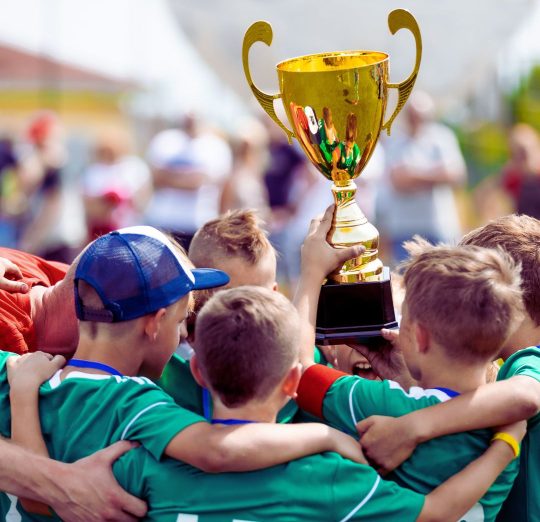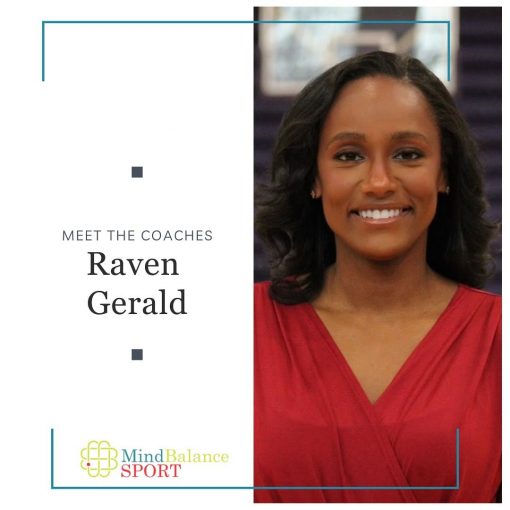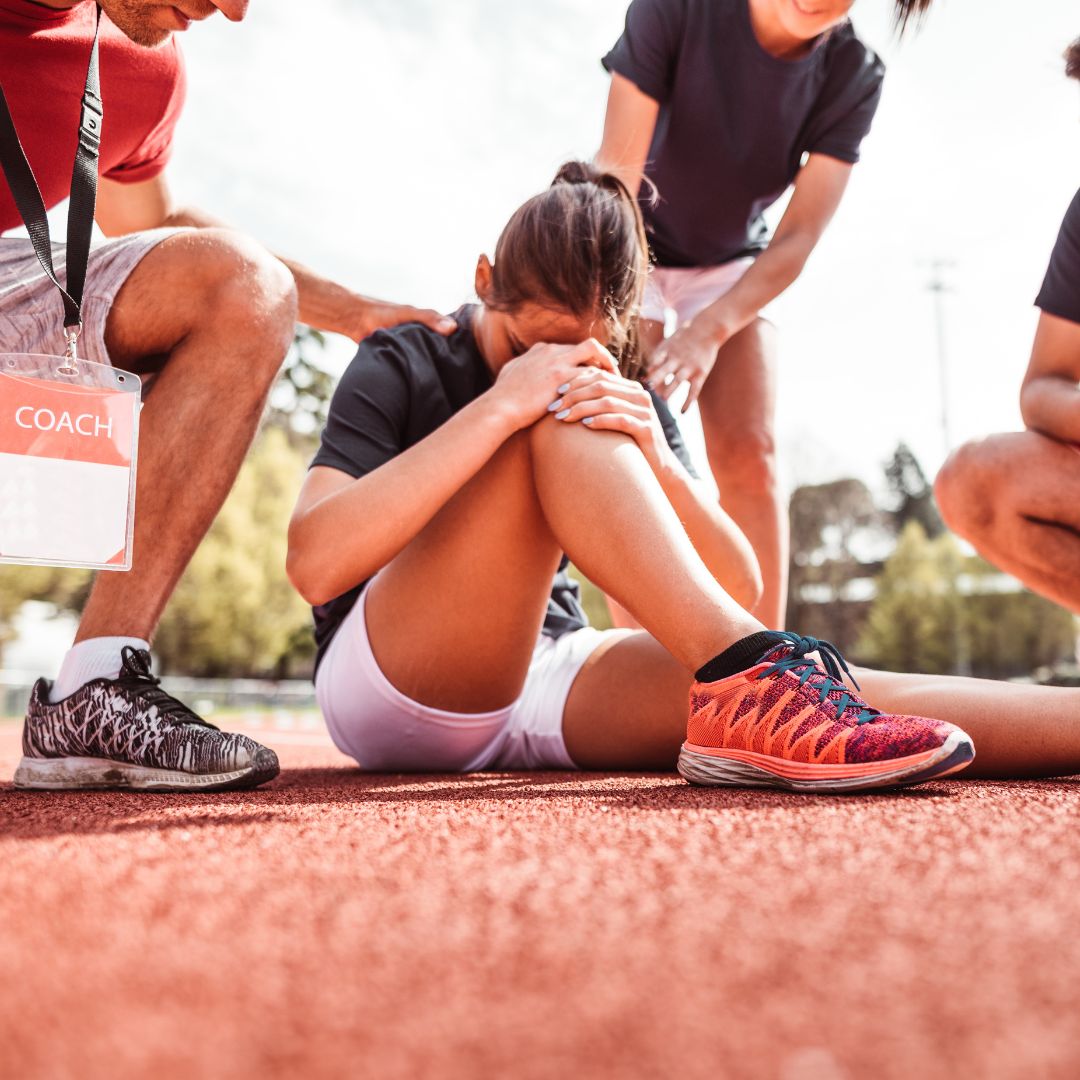Sports Psychologist in Annandale, VA
You want to work on your mental game, but how do you train your brain?
At MindBalanceSPORT, We Train The Other Half Of The Athlete.
You want to work on your mental game, but how do you train your brain?
Mental training does not get much media attention, but at MindBalanceSPORT we know it is a game changer. The mental skills you will learn at MindBalanceSPORT are generalizable in the classroom, in sport and in life!
We know that mental skills can be successfully taught, even at an early age.

Our Services
Meet the Team





testimonials
Athlete Stories: Real Comebacks, Real Results

Emma, a high school basketball player, tore her ACL in the middle of her junior season. After surgery, she struggled with self-doubt and fear every time she stepped back on the court. Through sport psychology training, she learned visualization techniques and confidence-building exercises that helped her regain trust in her knee. When she returned for her senior season, she didn’t just play—she led her team to the playoffs.

Carlos, a soccer player, suffered a stress fracture in his foot and had to miss half of his season. Sitting out was mentally tougher than the pain itself. We worked on mental engagement strategies to keep him sharp—studying game film, setting small rehab goals, and using mental imagery to stay ready. When he was finally cleared, his confidence never wavered.

Jordan, a track athlete, strained her hamstring before a major competition. She feared losing speed and falling behind competitors. Instead of focusing on what she couldn’t do, we redirected her energy toward mental preparation, using self-talk and goal setting to keep her confidence strong. When she returned, she set a new personal record.
EXCELLENTTrustindex verifies that the original source of the review is Google. It was a great help to my 14-year-old competitive volleyball player daughter. Raven was great to understand and connect with her from start to end. We will continue with our sessions as needed.Trustindex verifies that the original source of the review is Google. Great results! I’ve loved working with Paula. Our sessions have greatly improved both the physical and mental aspects of my tennis game. I’m playing better and having more fun! Highly recommend!Trustindex verifies that the original source of the review is Google. Our family had a wonderful experience with Paula Castro. We needed some additional confidence in a particular area/sport and Paula helped get us there. We know who to turn to if we need help again. She’s been a Blessing. Thank you, Paula!Trustindex verifies that the original source of the review is Google. I highly recommend MindBalanceSPORT. Our son works with John Howard. John is very caring, positive, and effective at working with teenagers. John is an adept listener and created an individualized plan tailored to our son’s personality. After just a few sessions with John, we noticed a significant improvement in our son’s motivation and mental approach to sports and life in general. Our son looks forward to meeting with John and tells us that he benefits immensely from their connection.Trustindex verifies that the original source of the review is Google. Paula Castro is an outstanding professional on the field. She has helped my daughter improve her confidence, preparation, and thanks to these session she feels more prepared and motivated. Paula takes the time also to share (what she can) and align with us as parents to be on the same page. Strongly recommended!Trustindex verifies that the original source of the review is Google. MineBalanceSPORT has quickly become the area's expert in sports psychology. Their reputation is well deserved given their incredibly thoughtful, scientifically based approaches to treating performance-related conditions, and I have only heard glowing, positive feedback from those who have engaged in their program. I will also add that Drs. Jones and Chirby presented to us (our group comprises of 15+ doctors and masters level clinicans) about their program and impressed us all with their level of expertise and passion for this field. I give them my highest recommendation.Trustindex verifies that the original source of the review is Google. Dr. Jones was beyond helpful to me throughout our time together. If you are an athlete and you need advice or assistance this is the place to come to. She completely changed my outlook and mindset in a time when I needed her most. I look forward to staying in touch with her and am forever thankful for her expertise.Trustindex verifies that the original source of the review is Google. Paula has been a huge help with my daughter Morgan coming off her injury. It’s been 18 months since she’s played basketball and she’s thriving because I know Paula is guiding her the right direction. As a mother, I’m extremely gratefulTrustindex verifies that the original source of the review is Google. If you are looking for Amazing Psychologists who can help support you in your sports performance, you need to call MindBalanceSPORT! Dr. Chirby and her colleagues are a wealth of knowledge, they have so many helpful techniques for mind balance, and they have so much compassion for the communities that they serve! Highly recommend!!!
Recovery
While Everyone Has A Physical Ceiling, There Is No Mental Ceiling.
9 Steps to Overcome Self-Doubt and Boost Your Performance with Sports Counselling in Annandale, VA
9 Steps to Overcome Self-Doubt and Boost Your Performance with Sports Counselling in Annandale, VA
Overcoming self-doubt is a critical step in improving athletic performance. Self-doubt can create mental roadblocks that limit an athlete’s ability to reach their full potential. Sports psychology offers practical strategies to address this challenge, fostering confidence and a positive mindset for success. Below are nine actionable steps to combat self-doubt and enhance your performance.
Overcoming Self-Doubt with Performance Psychology in Annandale, VA
The first step in overcoming self-doubt is recognizing it. Many athletes ignore or suppress their doubts, which only amplifies negative emotions over time.
– Reflect honestly on your feelings about your performance.
– Write down specific thoughts or fears that trigger doubt during training or competition.
By acknowledging these, you can begin addressing root causes rather than avoiding them.
Reframe Negative Thoughts with Sport Performance Training in Annandale, VA
Cognitive restructuring is a core principle in sports psychology that helps athletes replace negative thoughts with constructive ones.
– Negative Thought:”I’m not good enough for this team.
– Reframed Thought:”I’ve trained hard, and I belong here just as much as everyone else.
Use positive affirmations daily to reinforce this reframing practice.
How a Sports Mental Coach in Annandale, VA Can Help You Set Small, Achievable Goals
Breaking down larger objectives into smaller, manageable milestones can help reduce feelings of overwhelm and self-doubt by providing clear markers of progress:
| Large Goal | Smaller Milestones |
|————|———————|
| Run a marathon | Complete 5K within 30 minutes; increase distance weekly |
| Improve free throws | Practice technique for 15 minutes daily; aim for consistent accuracy improvement |
Focusing on reaching these smaller goals builds confidence incrementally.
Using Visualization Techniques in Sports Psychiatry in Annandale, VA
Visualization is one of the most effective tools employed by sports psychologists to combat self-doubt:
– Imagine yourself succeeding in specific scenarios (e. g. , scoring the winning goal).
– Pay attention to sensory details—how the environment feels, sounds, and looks during success moments.
This mental rehearsal strengthens neural pathways associated with confidence under pressure.
How to Develop Pre-Performance Routines with a Sports Psychologist Near Me
Establishing pre-performance routines creates a sense of control and readiness before games or events: – Include activities such as stretching, deep breathing exercises, and listening to motivational playlists. – Keep routines consistent to reduce anxiety and foster focus.
Athletes who follow clear routines often experience less uncertainty when stepping into high-pressure situations.
Mindfulness helps athletes stay present instead of dwelling on past failures or future fears:
– Dedicate five minutes each day to mindful breathing exercises. – Focus fully on current training sessions without judgment or distraction.
By embracing the present moment, you’re better able to push aside doubts and maximize performance during practice and competition alike.
Constructive feedback from coaches or mentors provides valuable insight into areas where improvement is possible without undermining confidence: – Look for specific advice rather than generic criticism. – Use feedback sessions as opportunities for growth rather than evaluations of personal worth.
Receiving guidance shifts focus from limitations toward solutions and progress instead.
The people around you can significantly impact your mindset: – Seek teammates who encourage positivity. – Limit exposure to individuals who consistently bring negativity into discussions about sports or performance-related topics.
Cultivating a strong support network bolsters resilience against external criticism while nurturing belief in personal abilities.
Recognizing even minor achievements reinforces progress made toward greater goals: 1. Write down daily accomplishments (e. g. , hitting new speed records during sprints). 2. Reward yourself periodically—this could be as simple as allowing extra downtime after meeting short-term targets.
Acknowledging small victories builds momentum while reaffirming trust in your capabilities over time.
By implementing these nine steps rooted in sports psychology principles, athletes can actively work toward overcoming self-doubt while building mental strength necessary for peak performance levels within their respective disciplines.
How Sports Psychologists in Annandale, VA Help Athletes Build Mental Toughness for Peak Performance
Mental toughness is a critical component of athletic success, enabling athletes to perform consistently under pressure, maintain focus, and recover from setbacks. Sports psychologists play a vital role in helping athletes cultivate this resilience and mental strength. Below are some key ways sports psychologists contribute to the development of mental toughness.
Athletes often face high-pressure situations that can lead to stress, anxiety, or frustration. Sports psychologists teach emotional regulation strategies to help athletes stay calm and composed during intense competitions.
Such practices help athletes control their emotional state, ensuring that their performance is unaffected by external pressures.
Self-belief is a cornerstone of mental toughness. Sports psychologists work with athletes to identify negative thought patterns and replace them with affirmations and constructive self-talk.
- Reframing failures as learning opportunities
- Celebrating small victories to reinforce progress
- Creating personalized affirmations related to performance
Through these methods, athletes strengthen their confidence and learn how to handle setbacks with optimism.
Distractions on or off the field can hinder an athlete’s ability to perform at their best.
| Technique | Description |
| Visualization | Mentally rehearsing successful performances before competing |
| Cue words | Using specific words or phrases as reminders for staying focused |
| Pre-performance routines | Establishing habits that signal the brain it’s time for optimal performance |
These strategies enable athletes to block out distractions and maintain laser-like focus during critical moments.
Failure is an inevitable part of sports, but how an athlete responds can define their career trajectory.
- Growth mindset practices, emphasizing improvement over fixed abilities
- Using setbacks as opportunities for reflection and growth
- Creating action plans for future improvement based on past failures
By shifting perspectives on failure, athletes are better prepared to bounce back stronger.
Sports psychologists often introduce stress-inducing simulations during practice sessions that mimic competitive environments. These simulations prepare athletes mentally for real-life scenarios where pressure levels are high.
Key benefits of simulation training:
– Reduced fear of failure under pressure
– Improved decision-making in high-stakes moments
This type of preparation strengthens an athlete’s ability to thrive in challenging conditions.
Final Thoughts on Mental Toughness Development
By working closely with sports psychologists, athletes gain access to tailored strategies that address their unique needs and challenges. Whether it’s emotional regulation, improved focus, or building confidence after setbacks, these professionals provide tools essential for achieving peak performance on a consistent basis.
The Role of Visualization Techniques in Achieving Athletic Success with the Help of a Sports Psychologist
Visualization, also known as mental imagery, is one of the most powerful tools in sports psychology. It involves creating detailed mental images of successful performance or specific scenarios in an athlete’s mind. With guidance from a sports psychologist, athletes can use visualization techniques to enhance their confidence, focus, and overall performance. This method leverages the brain’s ability to simulate experiences and can lead to tangible improvements on the field or court.
Benefits of Visualization in Sports
- Improved Performance: By mentally rehearsing skills and strategies, athletes can strengthen neural pathways associated with these actions.
- Enhanced Confidence: Picturing success helps athletes believe in their abilities and reduces performance-related anxiety.
- Focused Attention: Visualization allows athletes to mentally prepare for distractions and challenges during competition.
- Stronger Mental Resilience: Practicing visualization fosters a sense of control, helping athletes recover quickly after setbacks.
Key Visualization Techniques
Sports psychologists often use specific techniques tailored to meet an athlete’s needs.
- Internal imagery: Athletes imagine performing an action from their own perspective (e. g. , seeing through their eyes).
- External imagery: Athletes visualize themselves as if watching from a third-person perspective.
- Incorporate all senses—sight, sound, touch, smell, and even taste—to create vivid mental scenarios.
- A basketball player may visualize the feel of the ball in their hands and the sound of it swishing through the net.
- A swimmer might imagine hearing water splashes while feeling its resistance during strokes.
- Outcome-focused visualization: Envisioning achieving a goal, such as winning a race or scoring a point.
- Process-focused visualization: Mentally rehearsing every step required for success (e. g. , perfecting form during practice drills).
- Visualizing calm breaths or controlled reactions during high-pressure moments can help athletes stay composed under stress.
Steps for Successful Visualization Practice
| Step | Description |
| 1 | Find a quiet space free from distractions |
| 2 | Set clear objectives for what you want to visualize |
| 3 | Use all five senses to make your imagery vivid |
| 4 | Repeat regularly to reinforce neural connections |
| 5 | Work with a sports psychologist for expert guidance |
Role of Sports Psychologists in Visualization Training
- They assist athletes in identifying specific areas where mental imagery could improve performance.
- Psychologists teach structured methods for creating effective visualizations tailored to individual goals.
- They provide feedback to ensure that visualization practices align with reality and athletic requirements.
By incorporating these strategies under professional supervision, athletes can gain both mental clarity and physical readiness for competition. Visualization is not just about imagining success—it’s about training your mind alongside your body for peak athletic achievement.
Understanding the Importance of Goal Setting and Motivation in Sports Psychology
Goal setting and motivation are two pivotal components in sports psychology that directly influence an athlete’s performance, focus, and overall success. By understanding these concepts, athletes can create a structured approach to achieving their objectives while maintaining the mental resilience required to overcome challenges.
The Role of Goal Setting in Athletic Performance
Effective goal setting serves as a roadmap for athletes, providing direction and clarity on what they aim to accomplish. Sports psychologists often assist athletes in designing goals that align with their abilities and aspirations.
- Specificity: Goals should be clear and well-defined. For example, instead of aiming to “run faster,” an athlete can set a goal to “reduce their 5K time by 30 seconds within three months.
- Measurability: Progress should be trackable. This allows athletes to objectively determine whether they are moving closer to their goals.
- Achievability: Goals must be realistic based on the athlete’s current skill level, time frame, and resources.
- Relevance: The goals should align with the athlete’s broader ambitions or career path.
- Time-Bound: A target date ensures that progress is measured within a specific period.
By incorporating these principles (often referred to as SMART goals), athletes can maintain focus while avoiding frustration that comes with ambiguous or unrealistic objectives.
Intrinsic vs.
Motivation plays a crucial role in sustaining an athlete’s commitment towards their goals.
| Type of Motivation | Description | Examples |
| Intrinsic | Driven by internal satisfaction or personal growth | Love for the sport, desire for self-improvement |
| Extrinsic | Influenced by external rewards or recognition | Winning medals, financial incentives, praise from coaches |
Athletes often benefit most from intrinsic motivation as it fosters genuine passion for their sport. However, extrinsic motivators can complement internal drives when used strategically.
Combining Goal Setting with Motivation
Sports psychologists help athletes link their goals with motivational strategies to enhance performance.
- Long-term aspirations (e. g. , qualifying for an international tournament) may feel overwhelming without smaller milestones (e. g. , improving specific skills).
- Encouraging self-affirming statements helps athletes stay motivated during setbacks.
- Celebrating small victories boosts morale without over-reliance on external validation.
- Regularly imagining successful outcomes reinforces determination while embedding confidence.
When paired intelligently, goal setting and motivation not only improve athletic outcomes but also build mental resilience that extends beyond sports into other areas of life. These tools form the foundation of many successful athletic careers supported through sports psychology practices.
How Seeking Feedback and Support from a Sports Psychologist Can Transform Your Athletic Journey
The journey of an athlete is both physically and mentally demanding. While physical training is critical, the psychological aspect often determines the difference between good and exceptional performance. Seeking feedback and support from a sports psychologist plays a pivotal role in refining mental strength, identifying blind spots, and fostering personal growth. Here’s how engaging with these professionals can reshape your athletic journey.
Benefits of Feedback from a Sports Psychologist
Obtaining structured and actionable feedback from a sports psychologist can provide athletes with clarity and direction. This process involves assessing mental strengths, weaknesses, and patterns that may hinder or enhance performance.
- Improved Self-Awareness:Understanding mental habits such as negative self-talk, anxiety triggers, or overconfidence can help athletes make adjustments.
- Enhanced Focus:Feedback highlights areas where distractions arise and offers strategies to remain focused during competition.
- Tailored Performance Strategies:Psychologists provide customized techniques to improve mental resilience based on individual needs.
- Identifying Blind Spots:Athletes often overlook certain behaviors or mindsets that subtly impact their performance; psychologists bring these into focus.
The Role of Emotional Support
Beyond offering professional feedback, sports psychologists play an essential role in providing emotional support to athletes who face unique challenges such as injuries, setbacks, or high-pressure moments.
- Relaxation methods such as progressive muscle relaxation or controlled breathing exercises.
- Cognitive re-framing to manage stress more effectively.
- Encouraging positive reinforcement techniques.
- Identifying accomplishments to build self-efficacy.
- Developing coping mechanisms for losses or injuries.
- Assisting with mental recovery plans when physical recovery is required.
- Establishing healthy boundaries between personal life and sports commitments.
- Encouraging rest periods both physically and mentally.
Collaborative Approach: Athlete-Coach-Psychologist Triangle
Feedback is most effective when everyone involved collaborates harmoniously. A strong relationship among the athlete, coach, and psychologist ensures consistent communication regarding goals and progress.
| Role | Primary Responsibility | Contribution to Athlete’s Growth |
| Athlete | Openness to feedback & proactive participation | Implements recommendations for improvement |
| Coach | Provides tactical input & identifies struggles | Works alongside the psychologist for holistic growth |
| Psychologist | Delivers mental health insights & strategies | Refines the athlete’s mindset for optimal performance |
Steps Toward Transforming Your Path
- Seek out experienced sports psychologists who understand your sport’s specific demands.
- Set clear objectives at the start of your collaboration (e. g. , overcoming anxiety under pressure).
- Regularly review progress through conversations or written reports from the psychologist.
- Maintain transparency regarding challenges faced during implementation of strategies.
- Apply learned techniques consistently both in training sessions and competitions.
Seeking professional guidance ensures you are not navigating the challenges of athletics alone but with expert support tailored to help you thrive mentally as well as physically. This collaboration can be instrumental in achieving sustained success across all levels of competition while strengthening your overall mindset for future endeavors.
Sports psychology plays a crucial role in fostering this mindset by providing tools and strategies that athletes can use to develop resilience and thrive under pressure.
- Resilience:They recover quickly from setbacks and view failures as opportunities to learn.
- Emphasis on Effort:They value hard work over natural talent, understanding that consistent practice leads to improvement.
- Adaptability:They readily adjust their strategies or techniques in response to feedback or changing circumstances.
- Commitment to Lifelong Learning:They remain open to improving their skills and expanding their knowledge base over time.
By contrast, a fixed mindset limits progress as it involves believing abilities are static and unchangeable.
Sports psychologists use evidence-based methods to help athletes develop mental strategies that foster a growth-oriented approach.
- Techniques like journaling or reflecting on setbacks help identify lessons learned rather than dwelling on mistakes.
- Developing inner dialogues that focus on possibilities rather than limitations builds confidence.
- For example: Replace “I’ll never master this skill” with “It will take time and practice, but I’ll get there.
- Breaking down larger goals into smaller milestones ensures steady progress while maintaining motivation.
- Using SMART goals (Specific, Measurable, Achievable, Relevant, Time-bound) allows for structured advancement.
- Encouraging athletes to regularly step out of their comfort zones fosters adaptability.
- This might include training under unfamiliar conditions or learning new techniques outside their usual expertise.
- Implementing mindfulness helps athletes focus on the present moment instead of worrying about outcomes.
- Guided meditations or breathing exercises enhance concentration during high-pressure situations.
| Benefit | Description |
| Enhanced Performance | Athletes push their limits consistently without fear of failure. |
| Better Stress Management | Resilience enables them to handle pressure more effectively during games. |
| Stronger Work Ethic | A focus on effort cultivates discipline and commitment over time. |
| Greater Adaptability | Flexible thinking supports adjustments in tactics when required. |
| Sustainable Motivation | Embracing challenges keeps motivation alive even during tough periods. |
Practical Steps for Athletes
- Seek feedback from coaches or peers actively without defensiveness.
- Celebrate small achievements regularly while keeping the bigger picture in mind.
- Engage in mental conditioning exercises designed by professionals.
- Surround yourself with individuals who inspire persistence and positivity.
Developing such habits doesn’t happen overnight but requires consistent effort backed by guidance from skilled sports psychologists.








